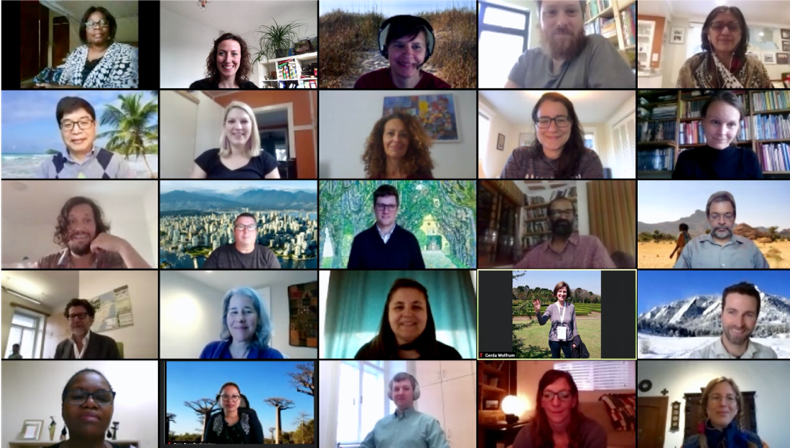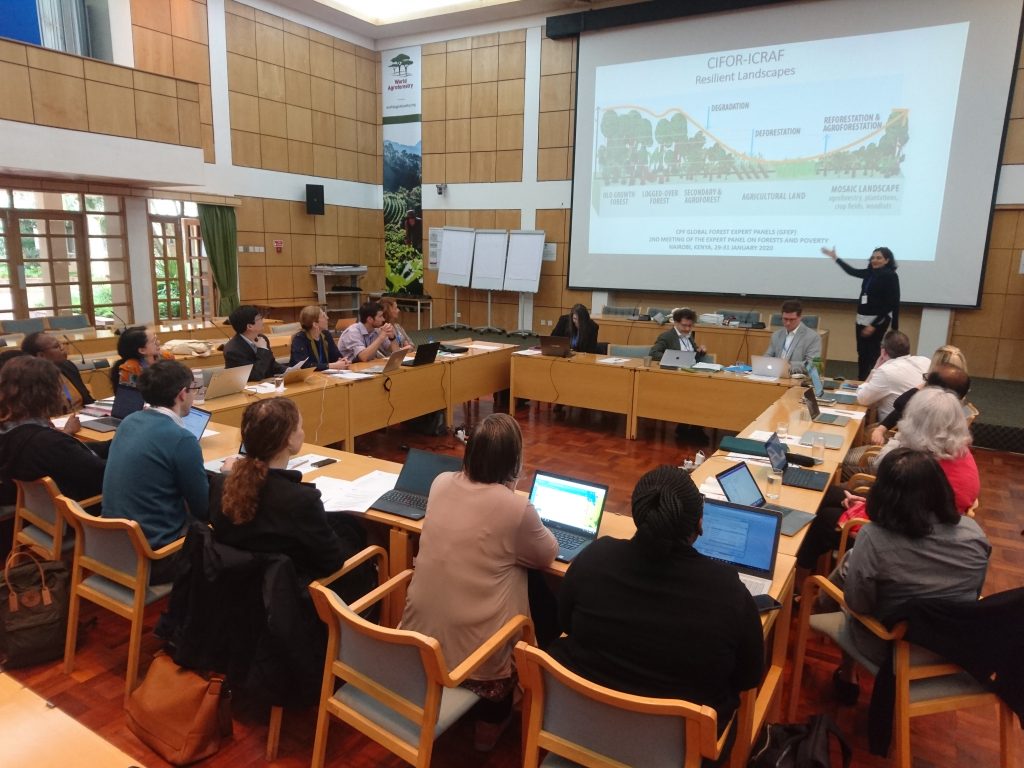In a globally connected world, we are used to communicating online. Nevertheless, many of us have been caught flat-footed by the sudden need to step up our virtual collaborations and give up face-to-face meetings due to the coronavirus pandemic. Read how 25 scientists of IUFRO’s Global Forest Expert Panel (GFEP) on Forests and Poverty and the GFEP team at IUFRO Headquarters virtually jumped in at the deep end and learned how to swim.

The Panel brings together experts from all corners of the world, various scientific disciplines and diverse cultural backgrounds. They are jointly writing a Global Assessment Report on links between forests and poverty to be launched in the second half of 2020.
After two physical meetings of the group a third and final meeting was scheduled for 15-17 April 2020 in Vienna, Austria. The aim of the meeting was to discuss the results of the peer-review process, share views on key messages of the report and prepare for the launch. The flights were booked, the agenda was set and both the authors and the GFEP team were looking forward to seeing each other in Vienna. Then the COVID-19 outbreak upset these plans.
A quick decision had to be made, as a postponement would have delayed the whole process. Therefore the GFEP team decided to hold the three-day meeting virtually. However, to make this work, the discussion time had to be limited to three hours per day in order to keep the participants’ motivation and concentration high. We are happy to say that we managed remarkably well.
Here is a short list of what we feel are the most important points to consider when facilitating a meeting online:
- Preparation is key
- Choose the right platform according to the number of participants, security level, user-friendliness (we used Zoom).
- Provide some technical guidance to participants on the use of the platform
- Prepare a detailed agenda
- Distribute tasks to enhance the “group work” feeling.
- Schedule the meeting mindful of the different time zones
- Keep the motivation high during the meeting
- Offer a short round of introduction and small talk
- Explain the rules of the game: moderation, recording, chat function
- Don’t forget to take breaks
- Share a daily summary
- Do a fun screen shot, always nice to remember
- Follow-up
- Prepare a final summary
- Evaluate the meeting
We think that virtual meetings are ideal for information sharing, but not so good for comprehensive scientific debates. Facilitating group work is much harder online. Organizing virtual break-out groups might be a solution here.
All in all, we are very happy with the outcomes of the virtual discussions, thanks to the high motivation of all participants, their discipline in time keeping and the (surprisingly) stable internet connections of the experts joining from all around the world.
More about the current Panel: https://www.iufro.org/science/gfep/gfep-initiative/panel-on-forests-and-poverty/
More about GFEP Programme: https://www.iufro.org/science/gfep/
HAVE YOU HAD similar experiences? What do your meetings look like these days? Do you have any recommendations for your fellow researchers and experts? IUFRO has set up a discussion blog for you to exchange views, ask questions and learn from each other: https://blog.iufro.org/how-i-met-my-fellow-scientists-virtually/


Leave a Reply